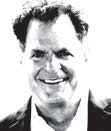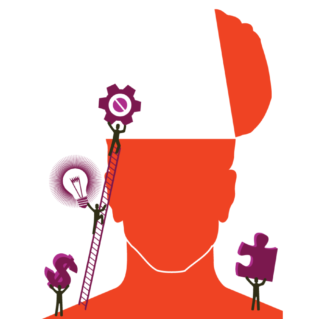On a scale of 1 to 10, where would you rate yourself on how coachable you are? Answering these two questions may help you understand more accurately where you are on that scale.
- How much have you invested in yourself in the last year to be better?
- How many hours have you intentionally invested in yourself in the last twelve.
Take a look at your phone right now and count how many audiobooks you have in your library. How many books are on your Kindle or other device? How many podcasts have you marked? How many learning notes do you have from past events? This should tell you something.

Coaching is a force multiplier. It’s a powerful tool used by too few. Why are so many people not being coached? Perhaps it’s because they’re not as coachable as they could be or think they are. And let’s face it—they don’t proactively, regularly, and strategically seek advice. It’s a blind spot for many.
If you’re ready for it, coaching is a powerful secret weapon. When new clients come to our RESULTS Center, I take note of how they learn. Do they ask questions or just listen? Do they take notes? Do they engage or just absorb? Are they committed to taking action on the strategic plan we’re developing?
Ten Qualities of Being Coachable
Over the more than three decades I’ve been coaching, I’ve observed the qualities of the people who seem to respond best to receiving learning—the ones who internalize what they’ve learned and immediately begin to put it to work in their lives so they can be better.
As we share these qualities with you, take a careful look at yourself and see how they apply to you. At the end of this article, we’ve included an instrument to rate yourself to know where you stand on these qualities.
1 / Strong Self-Esteem
People with a strong self-esteem don’t have to defend their position. They exhibit a measure of humility because they’re willing to ask themselves, Am I wrong? Can I improve? What am I not seeing? They have the confidence to ask Can I invest a little of my time, energy, and money to be better? Those who are not strong often seem to feel like they always need to be right. They perhaps have not built up enough of an emotional bank account to say I could be wrong.
2 / Open
How often do you seek insights and perspectives from a mentor, a trusted colleague, your banker, your field, your board, your team, your financial planner, and maybe even your kids or other people who are part of your life?
3 / Curious
Dr. Denis Waitley and I were invited to join Zig Ziglar in making his last video before he passed. We were interviewed in Zig’s studio by Gerhard Gerschwandtner, founder of Selling Power magazine. At one point during the interview, I reversed the question to Gerhard: “What do you think is the keyword that is most valuable in sales and seeking success?” He surprised me with his response: “Curiosity.” He suggested that curiosity drives a person to ask questions, including the why’s, and eventually get into some really great kernels of information. At that moment, I realized how powerful having a strong sense of curiosity is, and that revelation impacted my life in a huge way. A person who is very curious is very coachable.
4 / Hungry to Discover Best Practices
When you’re hungry, you’re eager to learn from everyone you meet, and you wake up every day asking, What can I learn today? You will be open to the best practices your coach shares with you and model part or all of them to grow your effectiveness.
5 / Willing to be Wrong
This is a cousin to having a strong self-esteem. Many people aren’t willing to accept when they’re wrong, whether they’re seeing something the wrong way or they’re not as efficient or as effective as they could be.
6 / Understanding You have Blind Spots
This is in the same family as being willing to be wrong. What are you not seeing that a coach could help you uncover? For example, maybe you’re making hiring choices that aren’t as good as they could be because you don’t have the ideal system for hiring the right people.
7 / Willing to invest in Yourself and Your Team
Do you put money toward books and videos that will make you and your team smarter? And are you open to investing in a coach—the right coach—to make yourself and your team better?
8 / Sold Out on Learning
Have you determined that you will be a lifetime learner and glean every bit of information you can each and every day? Having the consistent mindset of a student makes you very coachable.
9 / Self-Aware
Are you fully aware of your strengths and weaknesses? How about the values that guide your life? When is the last time you used a discovery tool like 360, SWOT analysis to assess how you relate to others and what your key motivations, habits, challenges, and weaknesses are? Have you sought mentors who will challenge you to improve?
10 / Willing to Take Ownership
A coachable person is willing to own up to the mistakes he/she has made and learn from them. Being accountable in this way is a choice you make and defines you as a person who doesn’t make excuses, manages expectations, and controls your thoughts and emotions.
Rate yourself on a scale of 1 to 10 in the assessment below. Let’s add up your score to see how coachable you are.

How did you do? If you’re not as coachable as you thought you were or want to be, then work on those areas you’re not strong in. Decide today to become more coachable so you can take full advantage of this powerful force multiplier that can change your life and bring you extraordinary success and results.

Tony Jeary—The Results Guy™—is a prolific author and a strategist. His organization, TJI, facilitates powerful meetings, keynote events and coaches high performers to accelerate their results.
From the October 2021 issue of Direct Selling News magazine.


